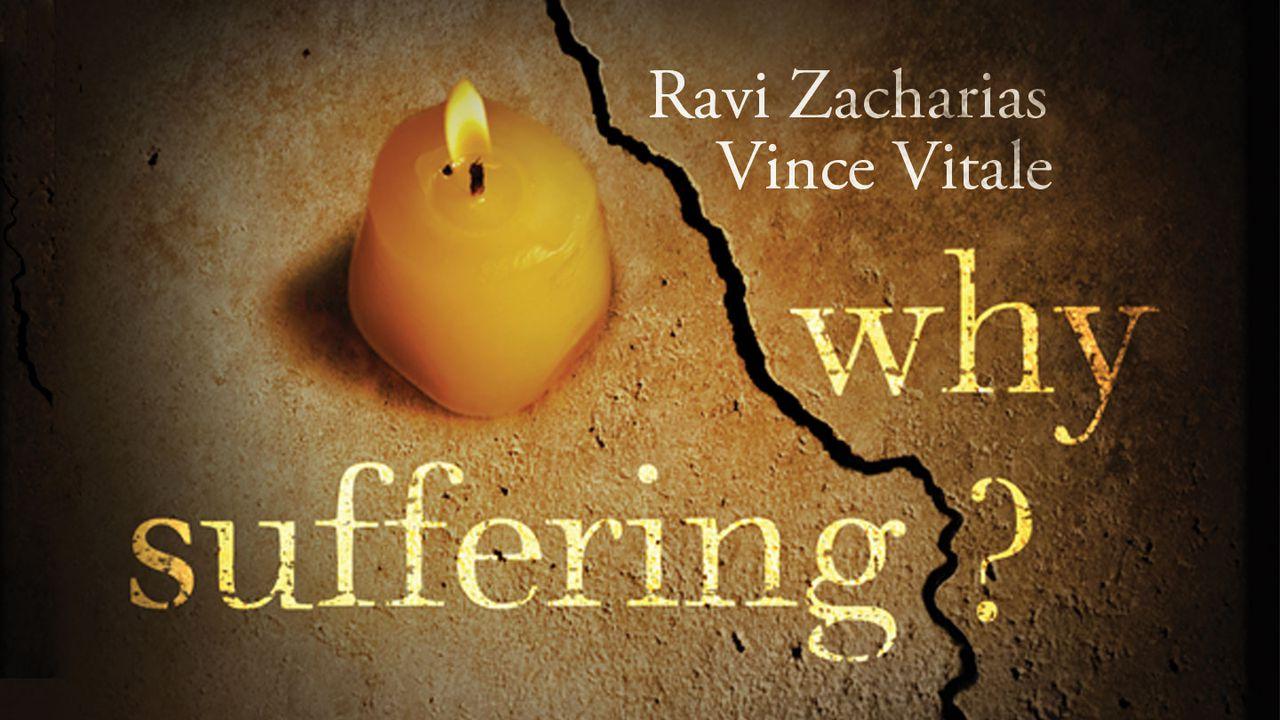Why SufferingSample

Framing the Question: The Pain and Suffering Trilemma
Atheist philosopher J. L. Mackie claims that “it can be shown, not that religious beliefs lack rational support, but that they are positively irrational.”[1] For atheists like Mackie, the belief that an all-powerful and loving God exists is irrational given the darkness of evil that is present in our world.
It’s safe to say that both skeptic and believer alike share one opinion in common: The question of pain and suffering provides the greatest challenge to belief in God, both intellectually and emotionally. The logic runs something like this: An all-powerful God can do anything He pleases, and from our perspective the loving thing to do is to ease or eliminate the pain and suffering we encounter daily. And yet, evil and suffering occupy a major part of our human experience; God has not removed them from our world. These assertions together make no sense to atheists like Mackie. In scholarly discussions, these three realities—God’s power, God’s love, and the reality of evil—are often described as an insoluble trilemma.
Indeed, why would God have created such a world in the first place? In His omniscience, God could foresee the extent of evil that would be committed and the depths to which the innocent would suffer. By presenting the question in this manner, the emotions are stretched to the ultimate limit and the problem indeed becomes thorny. No thinking, caring person can simply stroke his or her chin and say, “That’s true, but it’s unfortunately the way it is.” The anguish has to be felt and it is felt, and that’s why the question of suffering is raised in the first place.
But the questions run deeper. In fact, this is really more of a quadrilemma than a trilemma. God is all-powerful, all-loving, and all-wise . . . and evil exists. Or perhaps this is even a quintilemma: God is all-powerful, all-loving, all-wise, and eternal . . . and evil exists in time.
Any one of these assertions can be defended on reason alone or from the biblical text. Fundamentally, what the situation calls for is humility. Why is it that we finite, self-serving, time constrained, so-often-wrong human beings think we have all the wisdom needed in which to castigate God and hold Him before the bar of our wisdom within our time table? Is it simply not possible that, despite our belief that we are operating in the light, we could really be operating in the dark (1 Cor. 13:12)? Is it not also possible that there are character lessons learned in and through adversity that could never be learned in any other way?
God who exists in the eternal, in creating time and people, gives us the backdrop to the story and enough information so that we can know how this story—which is ultimately His story—will end. The true seeker after truth has enough evidence to enable him or her to endure through a finite lifetime what is of eternal value, and see in reality and experience the triumph of truth over a lie, of love over selfishness. It’s the ultimate triumph of the sacred over the profane. Neither is imaginary, and neither can be explained without the reality of the other.
Such is the hope and victory of one who grasps God’s story for humanity. You arrive at the place of freedom to hope again, because you sense the very presence of the One who makes you free.
Reflection Questions
- Revelation 5:5 declares that Jesus has triumphed in the spiritual realm, and yet Revelation 5:6 describes Jesus as a Lamb “looking as if it had been slain.” The image is one of both suffering (i.e., death) and victory. If Jesus triumphed over evil through suffering, what hope do we have as Christians?
- The Bible describes the kingdom of God as lasting “for ever and ever” (Dan. 7:18). We are also offered “eternal life” (John 3:16; Tit. 1:2) through faith in Jesus Christ. Eternity is, by definition, something infinite that cannot be measured. What impact does the eternal peace that we are headed for have on the present suffering that we endure?
Bible Verses
- Romans 5:2–5
- James 1:2–5
- 1 Corinthians 13:12
[1] J. L. Mackie, “Evil and Omnipotence,” Mind, n.s., 64, no. 254 (April 1955): 200. Available online at http://www.ditext.com/mackie/evil.html.
Scripture
About this Plan

This study is based on the book WHY SUFFERING? written by Christian apologist Ravi Zacharias and Vince Vitale, Dean of the Zacharias Institute, It is written for the Christian struggling for an answer, the seeker who thinks suffering disproves God’s existence, and the sufferer who needs a glimpse of a loving God.
More
We would like to thank RZIM for providing this plan. For more information, please visit: https://rzim.org
Related Plans

Two-Year Chronological Bible Reading Plan (First Year-February)

God Selected You

No Better News

Sukkah: Living in Joy

The Bible in Six Acts: The Jesus Bible Study Series

Hustle and Pray: Work Hard. Stay Surrendered. Let God Lead.

God's Child

A Legacy of Faithful Motherhood

Why Read the Bible? 30 Reasons Jesus Did
